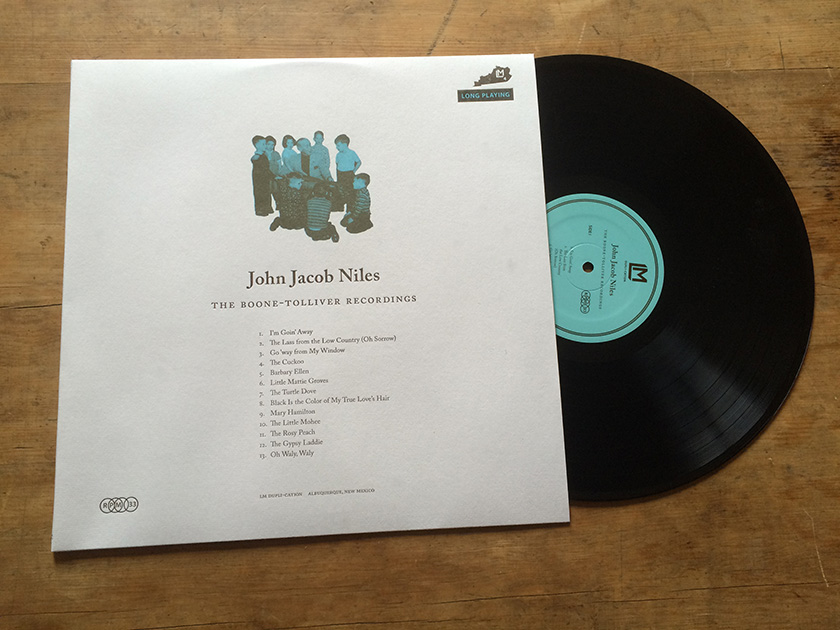
THE BOONE-TOLLIVER RECORDINGS
John Jacob Niles
“Niles was otherworldly and his voice raged with strange incantations.” —Bob Dylan In the 1950s, while audio recording was still an astronomically expensive art, limited to the laboratory-like environment of the professional studio, a few forward-thinking artists began to experiment with the idea of home recording. Sun Ra in Chicago and Les Paul in New York made history away from the studios. And deep in Appalachia, folk singer John Jacob Niles recorded a series of EPs in the place where he was most comfortable singing—his living room. Niles’s decision may have seemed strange to people around him; he was internationally known, had released music on RCA Victor, played Carnegie Hall, toured extensively in the US and been to England. But to Niles, it must have been a natural choice, as his life was a direct product of the things he made—he built his own dulcimers, farmed his land, carved the big doors at his Boot Hill farm. Niles then went one step further, and started his own label, Boone-Tolliver, literally a mom-and-pop affair (his wife Rena was in charge of mail order). The label released two EPs: John Jacob Niles: American Folk Love Songs and Ballads by Niles, before larger folk labels, like Tradition, came calling. While an independent, artist-owned label in the 1950s proved too difficult for Niles to run, by shying away from the studio and surrounding himself by family and friends, he succeeded in producing some of the best recordings of his career. Until now, these recordings have not been reissued on any format, so it is with great pleasure that another artist-run, mom-and-pop label, L.M. Dupli-cation, presents them back to the world. The Boone-Tolliver Recordings contains some of Niles’s greatest originals, such as “Go ’Way from my Window,” as well as traditional Appalachian ballads he found while traveling around Kentucky song collecting. “The Lass from the Low Country” is a haunting classic where Niles’s singular falsetto raises an eerie air to the sorrowful story of two lovers who can’t be together due to the difference in social class. “Little Mattie Groves,” an English song of the 16th century, is one of the centerpieces of the collection, where with quickening pace and tension, Niles takes on the voices of three distinct characters, as well as the narrator. As the story unfolds to a climax of violence, Niles completely loses himself to the narration, like a ghost from the England of 400 years ago come back to haunt the hills and valleys of Appalachia.
MEDIA
2016 Albuquerque, New Mexico
LM Duplication
